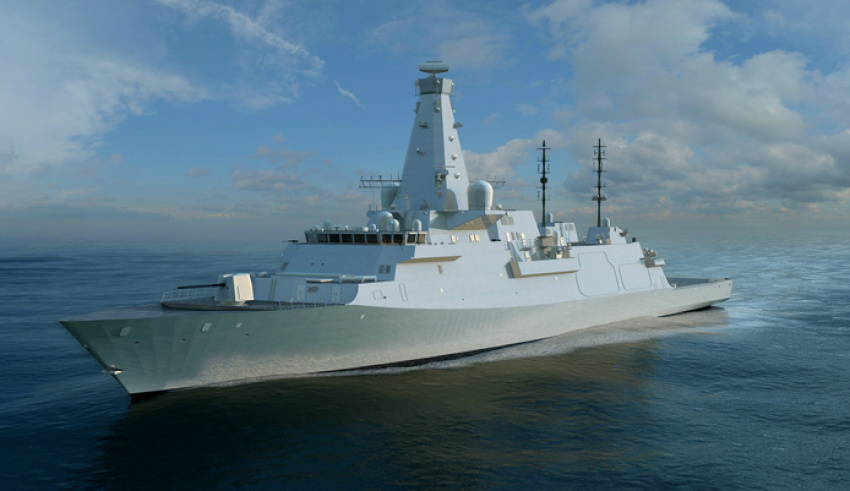BAE Systems will equip the Royal Australian Navy with a fleet of nine highly-advanced frigates, transforming not only the Navy but Australia’s sovereign shipbuilding capabilities.
The new ships – called the Hunter Class – will be built in Australia using Australian steel, and signal a dramatic shift in both combat and industrial capability.
BAE Systems’ Type 26 Global Combat Ship has been locked in competition against Spanish shipbuilder Navantia, with its evolved Hobart Class/F-100, and Italy’s Fincantieri, with its FREMM frigate, to secure the hotly-contested SEA 5000 Future Frigates program.
The Type 26 is currently in production for the UK's Royal Navy, with the program running five years ahead of the Australian SEA 5000 Future Frigates project.
The first Australian vessel will now be the fourth of class. The first ship for the Royal Navy cut steel last year in Glasgow and is due to hit the water in 2020.
The next-generation frigates will provide the Australian Defence Force with “the highest levels of lethality and deterrence our major surface combatants need in periods of global uncertainty”, Prime Minister Malcolm Turnbull said.
The Type 26 is touted as an anti-submarine warfare (ASW)-centric vessel and a sound addition to Australia’s naval capabilities.
The Hunter Class will have the capability to conduct a variety of missions independently, or as part of a task group, with sufficient range and endurance to operate effectively throughout the region, according to Prime Minister Turnbull.
The ships will include the incorporation of the leading-edge Australian-developed CEA phased array radar and the US Navy’s powerful Aegis combat management system. With an Australian interface developed by Saab Australia, the Hunter Class will be one of the most capable multi-role warships in the world.
As a responsible regional actor, Australia's future frigates will also have the flexibility to support non-warfare roles such as humanitarian assistance and disaster relief.
This $35 billion program will create 4,000 jobs throughout Australia and deliver unprecedented local and global opportunities for businesses large and small.
Deepening sovereign shipbuilding capability
The program provides a unique opportunity to not just strengthen but guarantee Australia's naval shipbuilding sovereignty.
BAE System's Hunter Class of frigates will be built by ASC Shipbuilding at the Osborne Naval Shipyard in South Australia.
ASC Shipbuilding, currently wholly owned by the Commonwealth, will become a subsidiary of BAE Systems.
This subsidiary status will ensure that BAE Systems is fully responsible and accountable for the timely delivery of the frigates and guarantees the work will be carried out by Australian workers and create Australian jobs, the Prime Minister said.
BAE Systems expects the Australian industry content (AIC) for the Hunter Class build will be 65-70 per cent, which will create and secure thousands of jobs for decades.
As part of its commitment to developing Australia's sovereign shipbuilding capability, BAE Systems has prequalified over 500 Australian businesses from every state and territory to be in the Hunter Class supply chain.
The build will draw on partners, including Rolls-Royce for example, which will provide the Type 26 powerplant, as detailed on the Defence Connect Podcast early this month.
The Commonwealth government will retain a sovereign share in ASC Shipbuilding while BAE manages the program, the Prime Minister said.
At the end of the program the Commonwealth will resume complete ownership of ASC Shipbuilding, thereby ensuring the retention in Australia of intellectual property, a highly skilled workforce and the associated equipment.
According to the Prime Minister, this will ensure that, by the conclusion of the frigate build, ASC Shipbuilding will be a strategic national asset capable of independently designing, developing and leading the construction of large, complex naval warships.
This agreement will not affect the Offshore Patrol Vessels, Air Warfare Destroyers, or the sustainment of the Collins Class submarines, and will not preclude ASC Group from pursuing future shipbuilding opportunities.
The Hunter Class will begin entering service in the late 2020s replacing the eight Anzac Class frigates, which have been in service since 1996.









